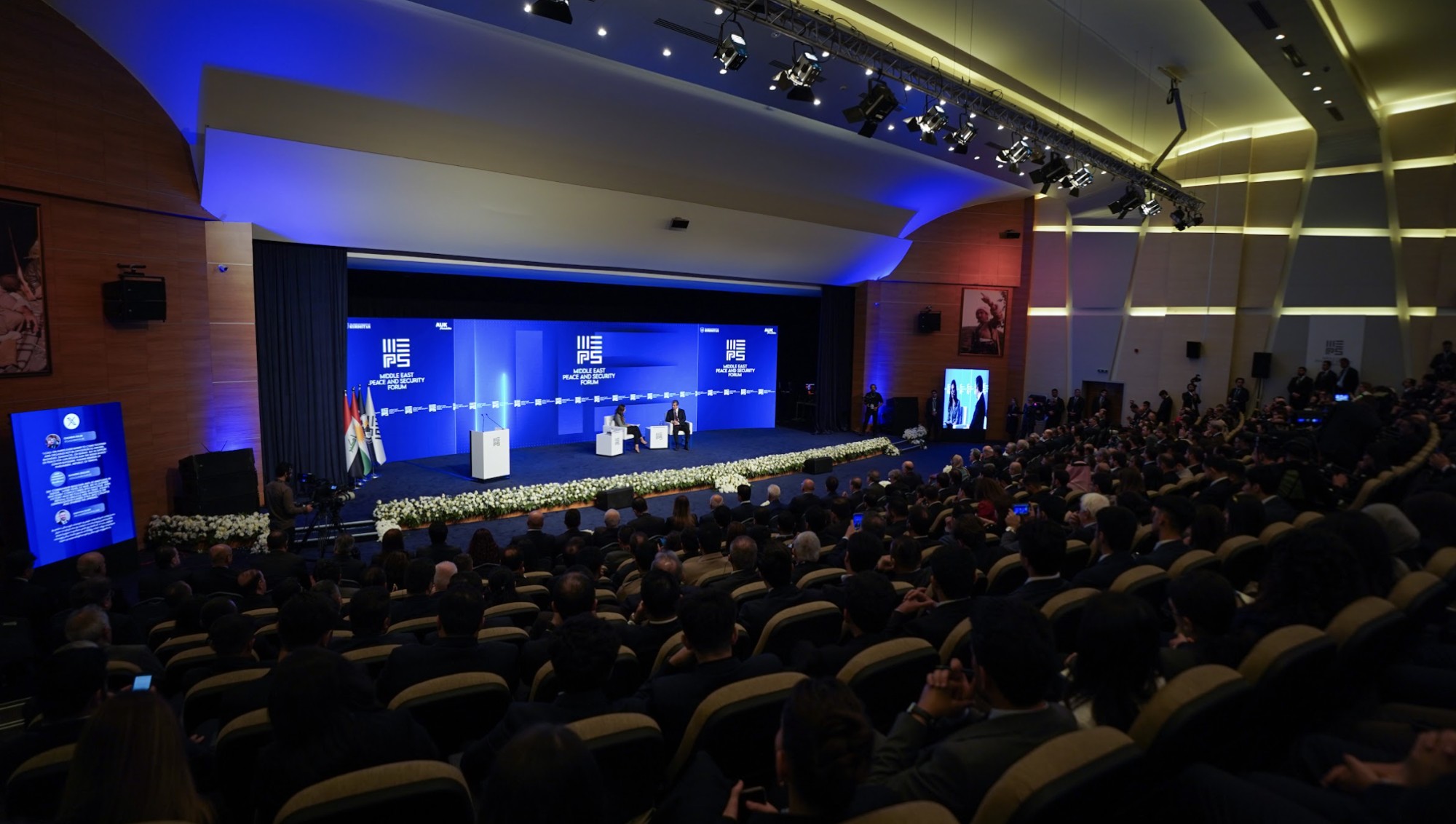In early August 2024, thousands of Iraqi women took to the streets to protest a proposed amendment bill that could roll back women’s rights in Iraq and, as argued by critics, fan the flames of sectarianism in a country that has already seen far too much ethnic violence.
Days before the protests, the Iraqi parliament completed its first reading of a bill that seeks to amend the country’s Personal Status Law, allowing Muslim families to marry according to either secular law or religious law. Those preferring the latter would be required to follow the sharia legal system of either the Sunni or Shi’a sects of Islam.
Human rights advocates and, especially women’s rights activists, believe that the amendment – more specifically the requirement of applying sharia precepts – would legalize child marriage and could strip women of their basic rights by replacing the judiciary with religious law, the same religious law that is often criticized for its purely patriarchal approach to all matters of people’s daily lives.
But that’s not all. If passed into a law, the amendment would not only govern marriage, but also divorce, child custody, inheritance, and many other aspects of social life, primarily affecting women and weakening if not altogether dismantling their legal rights.
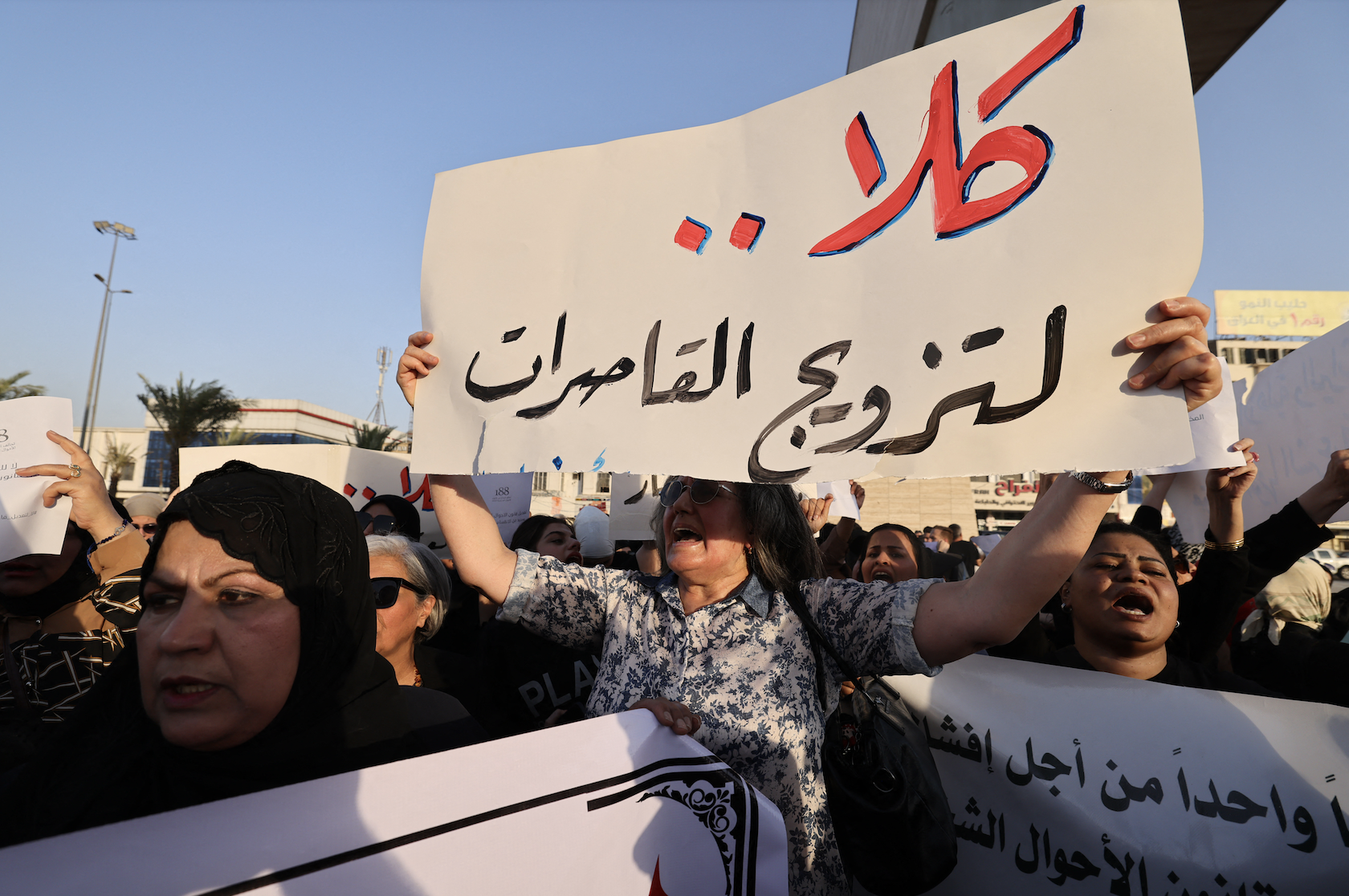
International watchdogs are concerned
On August 16, Human Rights Watch (HRW) published a report that expressed concern over the proposed amendment, saying that it “would have disastrous effects on women’s and girls’ rights that are guaranteed under international law by allowing marriage for girls as young as nine years old, undermining the principle of equality under Iraqi law and removing protections for women regarding divorce and inheritance.”
Sarah Sanbar, Iraq researcher in the Middle East and North Africa Division of HRW, was quoted in the report as describing the amendment as “a devastating step backward.”
“Formally legalizing child marriage would rob countless girls of their futures and well-being. Girls belong in school and on the playground, not in a wedding dress,” Sanbar was quoted by the HRW report, which warned that the arrangement could effectively establish separate legal regimes with different rights accorded to different religious sects.
Sanbar further urged Iraqi lawmakers to reject the amendment bill, warning that if it is passed “current and future generations of Iraqi women will remain strangled by an oppressive patriarchal legal system.”
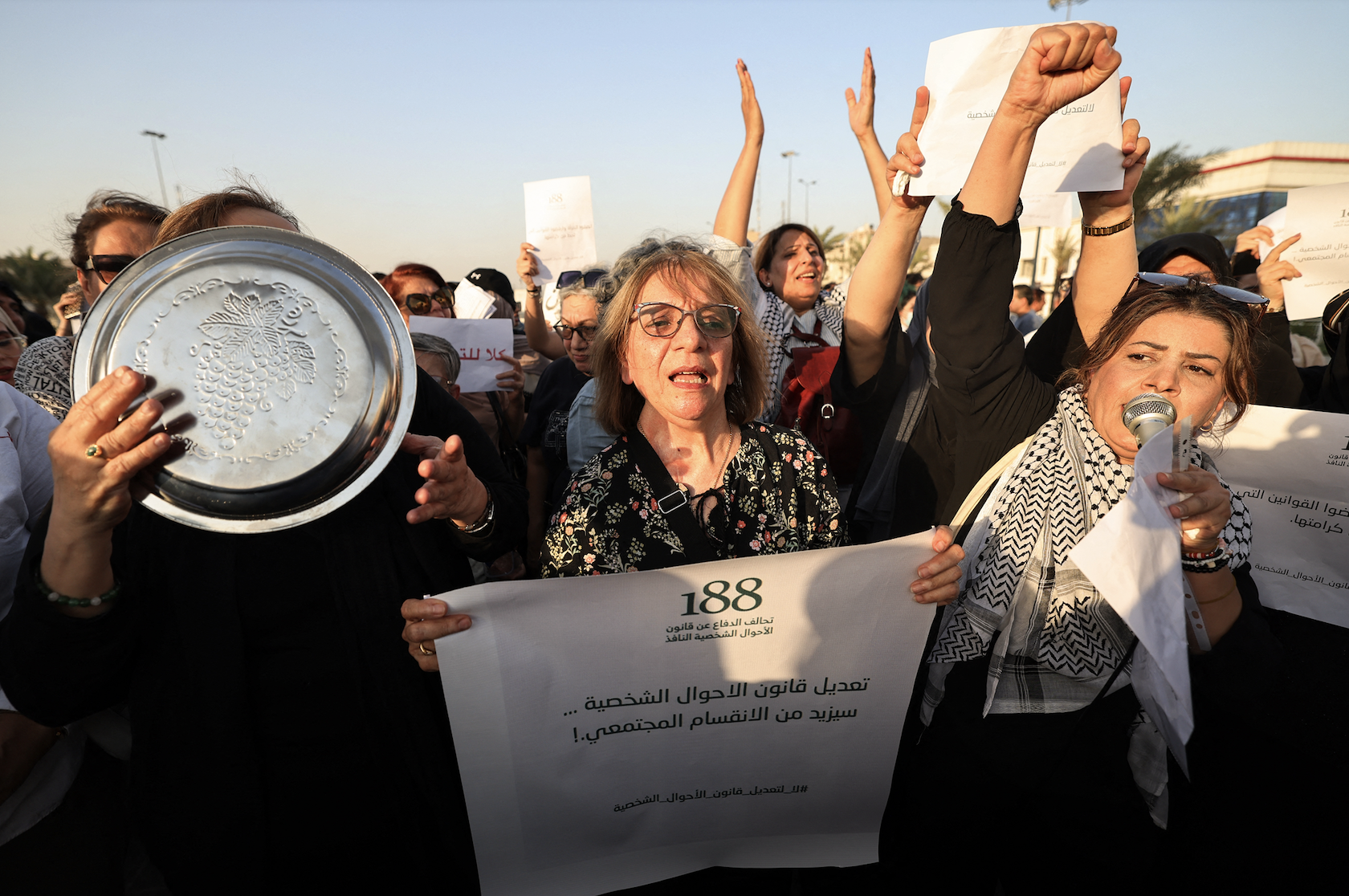
“It would further enshrine sectarianism in Iraq, undermining the right to legal equality for all Iraqis found in article 14 of the constitution and in international human rights law,” the report stressed.
Meanwhile, according to the HRW, the amendment would violate multiple UN conventions that Iraq joined decades ago, including the Convention on the Elimination of All Forms of Discrimination against Women, the Convention on the Rights of the Child, the International Covenant on Civil and Political Rights, and the International Covenant on Economic, Social, and Cultural Rights.
In a recent reaction to the amendment bill, the U.S. State Department’s Principal Deputy Spokesperson Vedant Patel urged Iraqi lawmakers to engage in dialogue while respecting freedom of religion and women’s rights equally.
“We are concerned about proposed amendments to the Iraqi Personal Status Law that could undermine the rights of women and children. We urge Iraqis to engage in a civic dialogue in full respect of both freedom of religion or belief and the rights of women and children,” Patel wrote in a statement published on his official X feed on August 20.
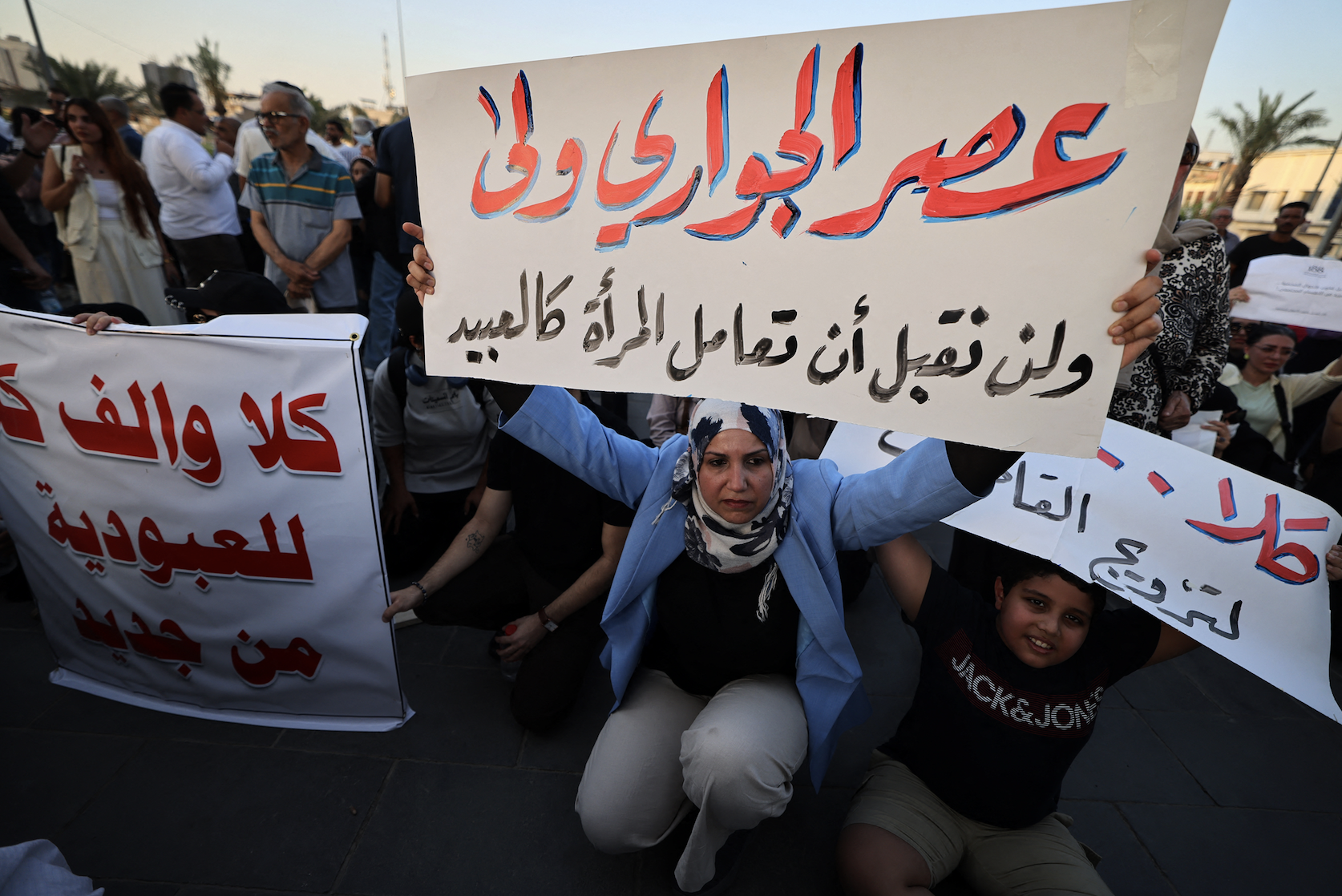
The current law and the amendment
The current Personal Status Law No. 188 was passed in 1959. At the time, it was considered the most progressive and protective of women’s rights in the Middle East. The law prohibits marriage of individuals under the age of 18, except for “extenuating circumstances,” when women as young as 15 are allowed to marry if they have permission from a judge and the parents.
In the proposed amendment, marriages conducted by local clerics and not the court or official government institutions would still be considered legal. The amendment argues that many marriages are officiated by Muslim clerics anyway, and that this amendment could serve as a legal structure to align the law with current societal practices.
Critics, however, believe that the amendment would allow controversial and contradicting interpretations of religious laws. For instance, Islamic laws allow the marriage of girls as young as nine, while the current law bans children under 18 from entering marriage, at least through the legal procedures that are already in place.
The amendment also undermines the rights of women during and after a divorce. According to the current Personal Status Law, if a husband requests a divorce, the wife will be granted some rights, including a three-year residence in their marital house at the husband’s expense, two years of spousal maintenance payments, and the payment of the current value of her dowry.
If, on the other hand, a wife requests a divorce, she can be awarded only some of these benefits depending on the circumstances that would be decided upon by a judge.
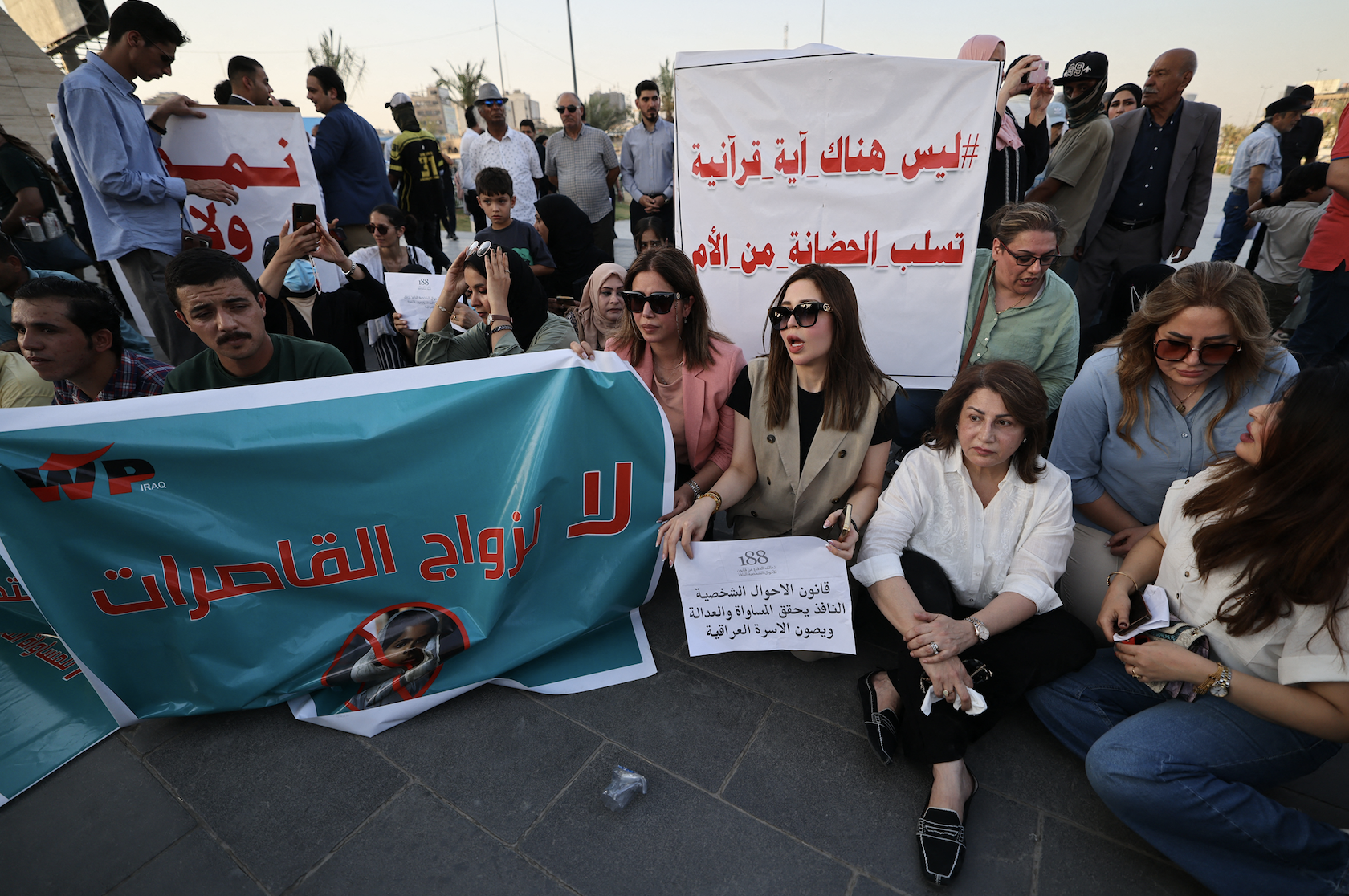
The political dimension
Some critics believe that the proposal of the amendment by a Shi’a lawmaker is more a political bargaining chip in the face of a previous amendment bill that was put forward by the Sunnis.
Political tensions continue between Shi’a and Sunni Arabs, despite a federal system in Iraq that many observers deem as a failed structure in practice. Mohammad Ali Alhakim, who previously served as the country’s foreign minister, argues that such controversial bills are introduced when the two major components – the Shi’a and the Sunni – cannot find common ground on specific political issues.
“Proposing this amendment to the Personal Status Law at this sensitive time is an attempt to stand up against the General Amnesty Law amendment that was proposed by the Sunnis,” al-Hakim told Kurdistan Chronicle. “The move aims to prevent the passage of the General Amnesty Law by putting pressure on the rival political parties. That means, in the end, none of the laws will be passed or at least they will not be passed easily.”
The General Amnesty Law paves the way for the release of thousands of inmates, many of whom were arrested under Article 4 of the Anti-Terrorism Law. The Sunnis believe that the majority-Shi’a government in Iraq arbitrarily arrested Sunnis in the aftermath of the war against ISIS. The amendment, however, remains controversial for even the Kurdish Yezidis, who argue that former ISIS members who participated in atrocities against the religious group could escape accountability.
Sardar Sattar is a translator and journalist based in the Kurdistan Region. He has an MA in English Studies from the University of Lodz, Poland. He has translated several books and political literature into Kurdish and English. He writes regularly for local and international newspapers and journals.
